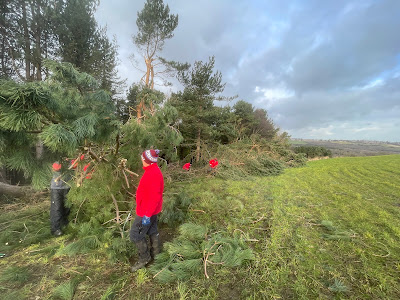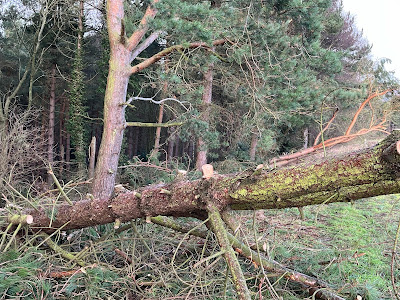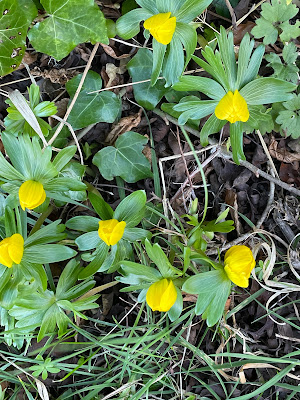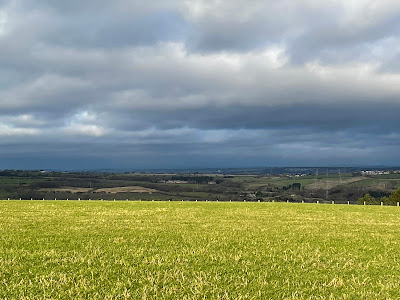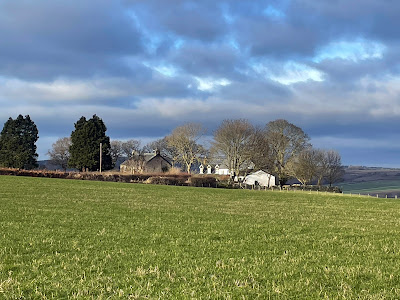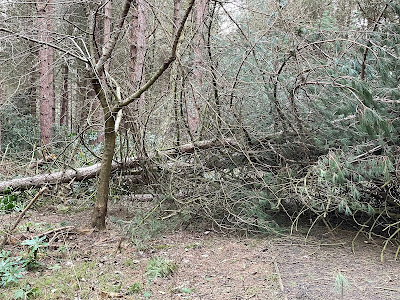February 2022
The car thermometer read 11oC on leaving home. On arrival at Gibside it had gone up a degree. Historically, the average high for February around here is 7oC; the low is 1oC. For a while now things haven’t been what they used to be, and today was seeing the build up to yet another unseasonal storm. Dennis would be a good name for a storm: Dennis the Menace. But this is Storm Dudley. The only Dudley I ever knew was rather a timid man and a bit boring but, it should be said, nice with it. Certainly not up to flattening a row of fifteen metre trees, though.
The work begins The extent of the carnage
We were above Snipes Dene where the Gibside estate borders a farm field clearing the damage done by Storms A, B and M. Well-practiced in destruction, the job of we volunteers was to lop off the side branches of fallen trees so that Rangers Steve and Dan could get in and hack up the trunks with chain saws and make a lot of noise. Fallen trees are often left where they fall except when presenting a danger or blocking a track or pathway. These trees had toppled into the neighbour’s field, so needed shifting.
 |
| Branches removed, celebrated with a rainbow |
We piled branches and brash to create a dead hedge along the fence line. Much of the wire fence had long since deteriorated or disappeared, but a line of fence posts remained to guide us. With logs from the chopped up trunk of one tree we built a log pile and took the opportunity to reminisce about our early days in the conservation team.
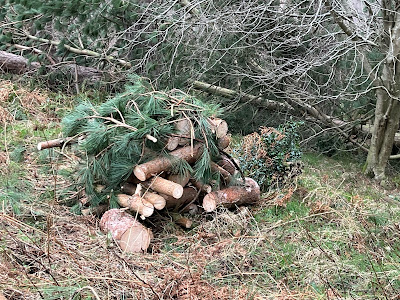 |
| A new logpile |
There are deer tracks in a few places down through the sloping wood to the people track, but it’s otherwise not a good place for bio-diversity. The trees here are Corsican pine which, as the name suggests, are not native to the Derwent Valley. Single species, non-native woodland tends to be a bit sterile, but fringe woodland is invariably a good place for a little natural variety. The margin of the field falls sharply to the boundary, so is left uncultivated. Log piles and dead hedges are good for encouraging wildlife; woodland fringes are better.
 |
| Elsewhere - signs that Spring is on it's way |

